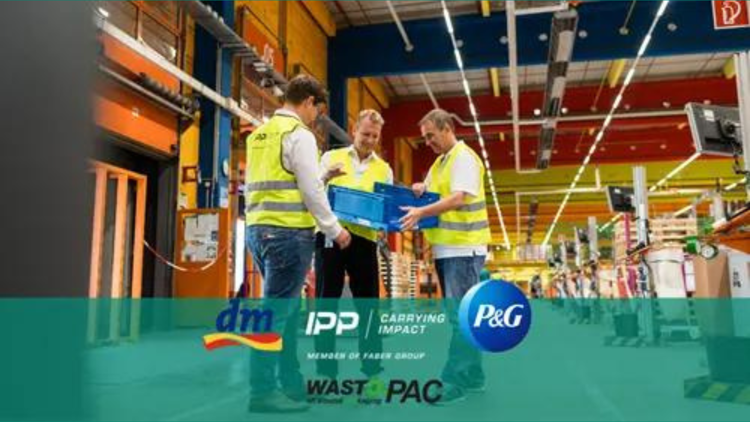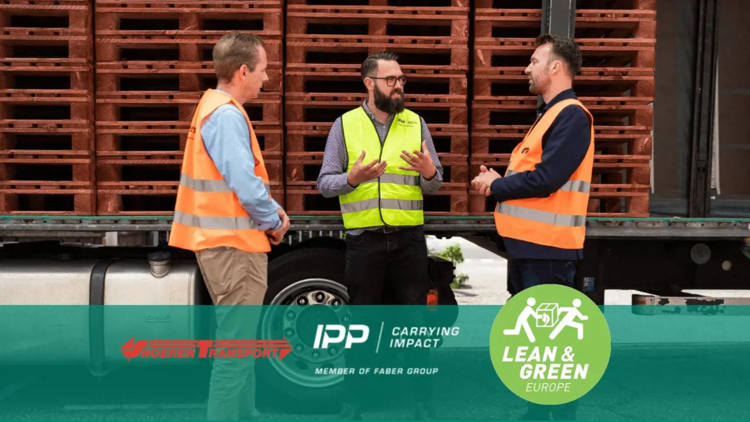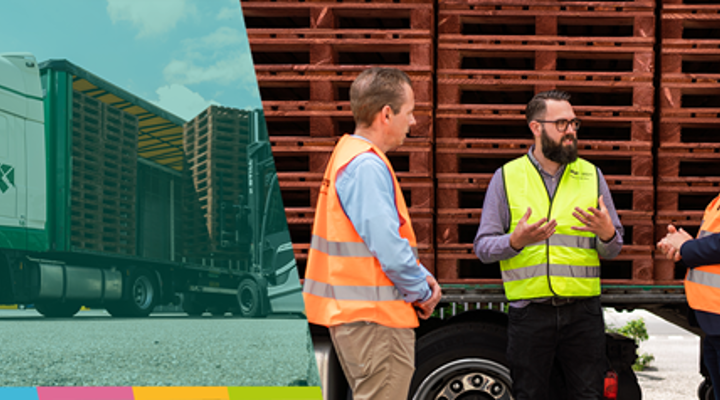IPP carries impact by reducing the carbon footprint in our own logistics, together with our partners
Reducing mileage, avoiding empty runs and optimising with full trailer loads drives footprint reduction and improves efficiency at the same time
Footprint reduction can also be achieved by the load carrier itself – for example, the SMART-box
Sustainable Practices in Our Logistics
- Efficient Transport: We optimise the transportation of pallets to reduce emissions and fuel consumption. This includes strategic routing, maximising load efficiency, and utilising eco-friendly vehicles whenever possible.
- Depot Operations: At our depots, we implement sustainable practices and collaborate intensively with our partners to enhance operational efficiency. This includes energy-efficient facilities, recycling programmes, and sustainable waste management.
Contributing to the UN Sustainable Development Goals
Our efforts align with the United Nations Sustainable Development Goals (SDGs), demonstrating our dedication to global sustainability initiatives. By reducing our carbon footprint and promoting circular economy principles, we contribute to goals such as:
- Responsible Consumption and Production (Goal 12): By extending the lifespan of our pallets and boxes through maintenance and repair, and ensuring they are recycled into biomass at the end of their life cycle.
- Climate Action (Goal 13): Through reducing greenhouse gas emissions in our transportation and logistics activities.
- Partnerships for the Goals (Goal 17): By working closely with our partners to achieve shared sustainability objectives.
Double Win: Efficiency and Sustainability
Our approach not only supports environmental sustainability but also enhances operational efficiency for both IPP and our partners. This dual benefit ensures that we are not only meeting our sustainability goals but also improving the effectiveness and cost-efficiency of our operations.
In this expertise series, we invite you to learn more about our journey of footprint reduction in logistics.
IPP carries impact by reducing the carbon footprint in our own logistics, together with our partners
Reducing mileage, avoiding empty runs and optimising with full trailer loads drives footprint reduction and improves efficiency at the same time
Footprint reduction can also be achieved by the load carrier itself – for example, the SMART-box.
GS1 SMART-Box – the sustainable load carrier
Footprint reduction in logistics is not just about optimising the transport – there is also much potential in the load carrier itself.
The GS1 SMART-Box is a standardised, reusable innovation by industry, retail and GS1 Germany, with IPP as pooling partner.
The GS1 SMART-Box supports both optimising the logistic process and reducing packaging material – it brings advantages to all partners involved throughout the supply chain.
Follow the GS1 SMART-Box on its journey all the way from depot to industry and retail in this video with Dirk Freda, Martin Bachmann and Tobias Lorke of IPP Germany, Jace Hornage of Wasto-Pac, Ingo Schimmelpfennig and Frank Jacobi of Procter & Gamble and Christian Bodi of DM.

Reducing carbon footprint through Lean and Green Europe
IPP is one of the first participants in the European Lean and Green program. After successfully achieving a three-star Lean and Green certification with IPP Spain, IPP decided to participate in the European Lean and Green programme to cover all markets we work in. Lean and Green aims to reduce carbon footprints through collaboration, innovation and optimising efficiency throughout logistic supply chains. Learn more from the European Lean and Green programme manager, Dirk van der Lee, IPP pooling director Mark Hulland and one of our hauliers, Henk Snoeren – owner of Snoeren Transport in the Netherlands.

